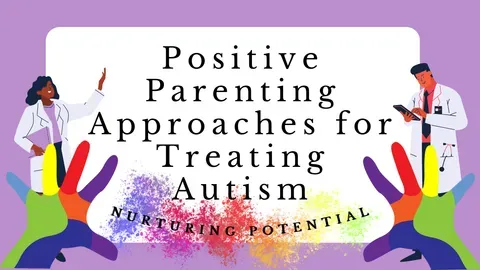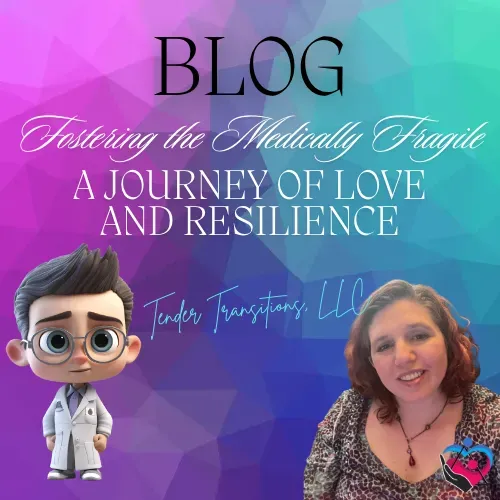Positive Parenting Approaches for Treating Autism
As an Autism Parenting Coach, I believe that every child has unique potential and deserves to be nurtured with love, compassion, and evidence-based strategies. Autism Spectrum Disorder is a neurodevelopmental disorder that affects communication, behavior, and social interaction. It can present challenges, but with the right approaches, it is possible to support children with ASD in reaching their full potential. In this blog, we will explore treatments for autism spectrum disorder from a positive parenting perspective.

Nurturing Potential
Early Intervention: The Importance of Starting Early
Early intervention is crucial for children with ASD. Research shows that early diagnosis and intervention can significantly improve outcomes for children with ASD. If you suspect your child may have ASD, I encourage you to seek a professional evaluation. Early intervention programs typically involve a combination of therapies, such as speech and language therapy, occupational therapy, and behavioral therapy. These therapies are designed to address the specific needs of children with ASD and help them develop skills in communication, social interaction, and daily living.
Applied Behavior Analysis (ABA): Promoting Positive Behaviors
Applied Behavior Analysis (ABA) is a widely recognized and evidence-based therapy for children with ASD. ABA focuses on promoting positive behaviors and reducing challenging behaviors through systematic and individualized interventions. The importance of using positive reinforcement to encourage desired behaviors and using clear and consistent consequences for challenging behaviors cannot be overemphasized. ABA programs are typically tailored to the needs of each child and may include techniques such as discrete trial training, natural environment training, and social skills training.
Communication Strategies: Unlocking the Power of Communication
Communication can be a significant challenge for children with ASD, but with the right strategies, it is possible to unlock the power of communication. As an Autism Parenting Coach, I encourage parents to use a variety of communication strategies, including visual supports, social stories, and visual schedules. These tools can help children with ASD understand and follow instructions, express their needs and preferences, and engage in social interactions. It is also essential to create a supportive and inclusive communication environment that encourages children with ASD to communicate in their preferred ways, whether it's through speech, sign language, or other forms of communication.
Social Skills Training: Building Meaningful Connections
Social skills training is a crucial component of treating ASD from a positive parenting perspective. Children with ASD often struggle with social interactions and may find it challenging to understand social cues, engage in play, and develop meaningful relationships.Teaching social skills in a structured and supportive environment is so important. This may involve teaching skills such as turn-taking, sharing, listening, and understanding emotions. It is also essential to provide opportunities for children with ASD to practice these skills in real-life situations and celebrate their successes.
Sensory Integration: Addressing Sensory Challenges
Many children with ASD have sensory processing challenges, which can impact their daily lives and behaviors. Sensory integration therapy is a treatment approach that focuses on helping children with ASD process and respond to sensory information in a more adaptive way. I encourage you to work with occupational therapists who can provide sensory integration therapy to address sensory challenges. This may involve activities such as swinging, brushing, and deep pressure techniques to help children regulate their sensory system and reduce sensory-related behaviors.
Family Support: Nurturing the Whole Family
Treating ASD from a positive parenting perspective also involves nurturing the whole family. Caring for a child with ASD can be challenging, and parents and siblings may experience stress, frustration, and emotional exhaustion. The importance of self-care for parents and the need to create a supportive and inclusive family environment cannot be overemphasized. This may involve setting realistic expectations, practicing self-compassion, seeking support from a therapist or support group, and taking time for self-care activities. It is also crucial to involve siblings in the treatment process and provide them with education and support to understand and cope with their sibling's ASD.
Individualized Approach: Recognizing and Nurturing Each Child's Strengths
As an Autism Parenting Coach, I believe in recognizing and nurturing each child's strengths. Children with ASD have unique abilities, talents, and interests, and it's essential to tailor interventions to their individual needs and strengths. This may involve identifying and leveraging their special interests, providing opportunities for them to develop their talents, and celebrating their achievements. An individualized approach that focuses on a child's strengths can boost their self-esteem, motivation, and overall well-being.
Emphasis on Positive Reinforcement: Encouraging and Celebrating Progress
Positive reinforcement is a fundamental principle of positive parenting and can be particularly effective in treating ASD. I encourage you to use positive reinforcement techniques to encourage and celebrate your child's progress. This may involve using praise, rewards, and incentives to reinforce desired behaviors, such as using words to request, making eye contact, or engaging in social interactions. Positive reinforcement creates a motivating and supportive environment that encourages children with ASD to continue developing their skills and reaching their potential.
Collaborative Approach: Working with a Team of Professionals
Treating ASD requires a collaborative approach that involves a team of professionals, including speech and language therapists, occupational therapists, behavioral therapists, psychologists, and educators. I cannot emphasize enough the importance of working closely with a team of professionals to develop and implement an individualized treatment plan for your child. Regular communication, coordination, and collaboration among professionals and parents are essential to ensure a consistent and effective treatment approach that supports your child's overall development.
Patience, Empathy, and Unconditional Love: The Foundation of Positive Parenting for ASD
Finally, the foundation of positive parenting for children with ASD, or any child for that matter, is patience, empathy, and unconditional love. I want to remind you to be patient with your child's progress, as every child develops at their own pace. Empathy is also crucial in understanding and validating the unique challenges that children with ASD may face in their daily lives. And above all, unconditional love is the most powerful force that can support a child with ASD to thrive and reach their full potential.
Conclusion
In conclusion, treating autism spectrum disorder from a positive parenting perspective involves early intervention, using evidence-based approaches such as ABA, communication strategies, social skills training, sensory integration, family support, individualized approach, positive reinforcement, collaborative approach, and most importantly, patience, empathy, and unconditional love. Every child with ASD has unique potential, and with the right strategies, support, and mindset, they can thrive and lead fulfilling lives. As an Autism Parenting Coach, I encourage parents to approach the treatment of ASD with positivity, compassion, and hope, and to seek professional guidance and support to create a nurturing and inclusive environment for their child to flourish.
SCHEDULE A FREE AUTISM PARENTING COACHING CALL WITH AUTISM PARENTING COACH, NISHONI HARVEY, TODAY!

